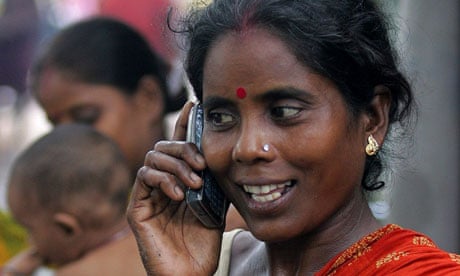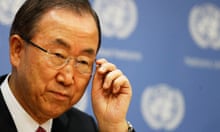Access to, and the use of, technology should not be a standalone goal in any future development agenda because it will be the tool by which the targets will be achieved, according to Jeffrey Sachs.
Speaking at a roundtable event at the Social Good Summit in New York on Sunday, the director of the Earth Institute at Colombia University said: "The goals depend on technology … This is technology for solving problems, not in itself."
On the eve of the UN general assembly's three-day focus on the millennium development goals (MDGs) and their successors, Sachs claimed technology, specifically mobile phones, had been a gift for development. "It has changed how everything about development is done," he said, adding that it had made people less isolated and provided better access to medical care.
As part of his work with the UN sustainable development solutions network, which mobilises scientific and technical expertise to find solutions to global challenges, Sachs is leading a campaign to get 1 million community health workers mobilised in Africa by 2015, to help meet the health-related MDGs. Sachs wants all of them to have access to a mobile phone.
His comments coincide with the publication on Saturday of a UN report that says although nearly 40% of people worldwide will be online by the end of the year, more than two-thirds of people in developing countries will remain unconnected.
The survey on broadband access, published by the UN broadband commission for digital development, reveals that more than 90% of people in the 49 least developed countries do not have access to the internet.
The report, which examined broadband access in 160 countries, looked at price, household and individual access, government broadband policy, access to high-speech technology and women's access to the internet.
The UN secretary-general, Ban Ki-moon, said at the launch of the report: "As the world becomes increasingly digital, simple connectivity is no longer enough. Affordable broadband must be within reach of people, businesses and governments in all corners of the world." The world needed to see the same kind of rapid and equitable spread of broadband that it experienced with mobile phones, he added.
The secretary-general of the UN international telecommunications union (ITU), Hamadoun Touré, said: "Internet, and particularly broadband internet, has become a key tool for social and economic development, and needs to be prioritised, even in the world's poorest nations."
The union estimates that 200 million fewer women than men are able to access the internet. In March, the ITU and the broadband commission set a target for gender equality in access to broadband by 2020.
Sachs appeared undaunted by the figures. He said even if there was only one smartphone available in a school, or if just one community health worker had one, its use would impact hundreds of people within the community.
Achieving the ambition to boost technology access would require public-private partnerships, Sachs added. "Public-private partnerships are the name of the game right now. I think we can get to those community health workers," he said. "It's no different from 13 years ago to get people [access] to antiretrovirals. In 2000 there wasn't one [antiretroviral therapy] official development programme. These things can be done, but they require a lot of organisation and industry support."




Comments (…)
Sign in or create your Guardian account to join the discussion